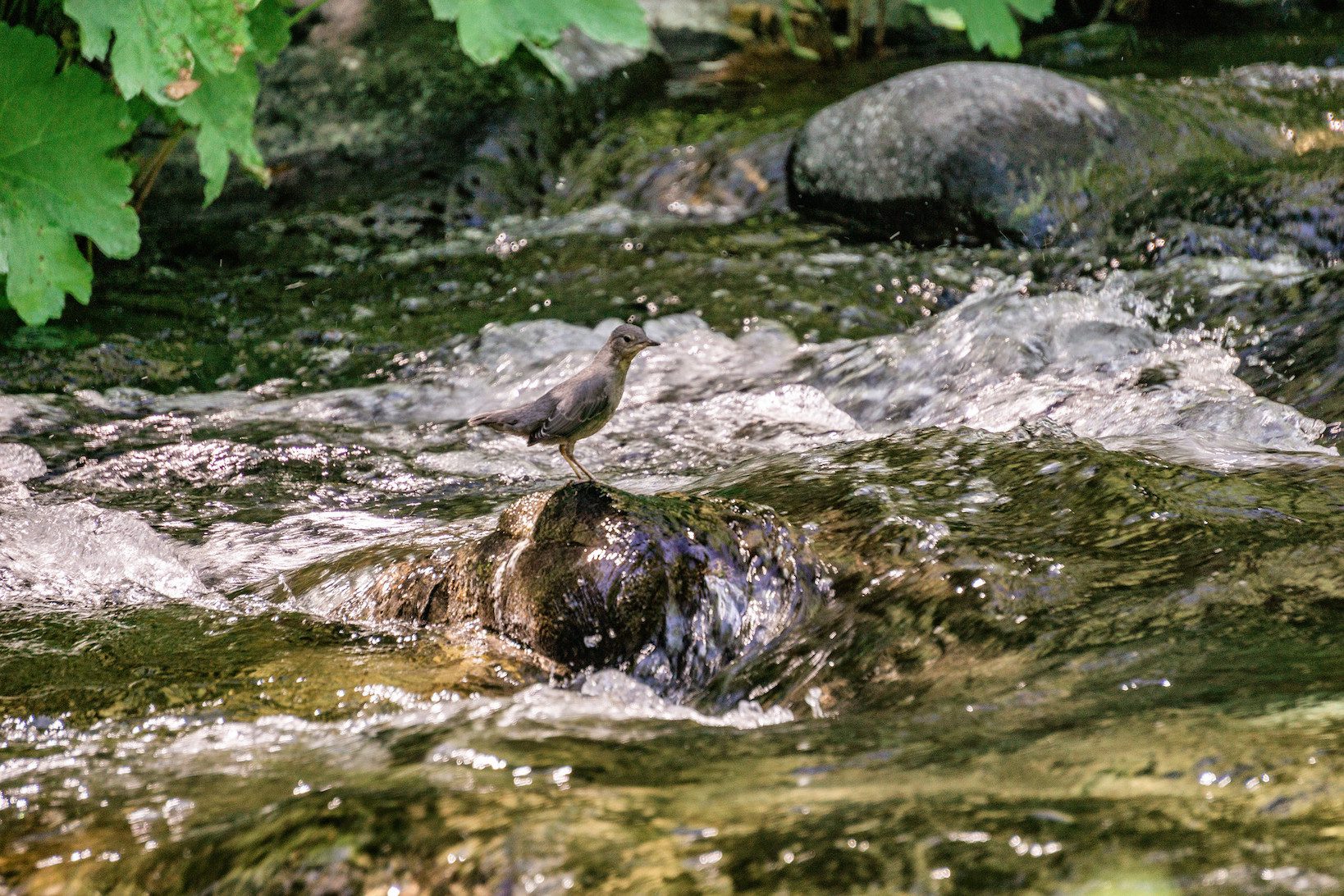Wednesday October 2, 2019

Songbirds aren’t typically thought of as water-loving fowl, but the American dipper (Cinculus mexicanus) breaks from that stereotype. Living almost exclusively on flowing streams, this species is the Michael Phelps of the songbirds. Entirely gray apart from their bright white eyelids, dippers constantly bob their bodies up and down like a sailor on choppy seas. Not content to forage on land alone, they will happily wade, swim, and even dive into the water, where they turn over rocks on the streambed in search of the larvae of aquatic insects like mayflies, mosquitoes, and midges. If available, they’ll also eat the fry and eggs of fish, including those of salmon. Often observed perched atop a rock mid-stream – like this individual we spotted in Big Chico Creek – they will sometimes quickly stick their heads under water to take a look around for submerged snacks. Although it may be hard to hear over the rushing water, one songbird stereotype they do maintain is having a beautiful call.
Found throughout Western North America, dippers don’t migrate and never stray far from the stream, although they will move to unfrozen rivers in the winter or follow hatching insects in the spring and summer. Whether on the coast, in the mountains, or even in the desert, dippers can make a living there as long as the stream is rocky and clean. Males and females will work together to build nests on cliff ledges, overhanging banks, or boulders, under bridges, or behind waterfalls. They collect materials like bark, leaves, and grass, then dip them in the water and weave them into a cozy nest for the four to five eggs they lay in a brood. They tend to select nest sites that are high enough to not be flooded, but which are also located over deep water to prevent predators from reaching them.
These generally solitary birds are difficult to monitor, but their populations appear to be stable. Pollution associated with human activities like agriculture, mining, and logging often reduces water quality and the availability of prey items, which may force dippers to abandon a stream in search of cleaner waters. Their close connection to streams also makes them particularly susceptible to pollutants like PCBs and heavy metals. Maintaining healthy waterways will ensure that these streamfaring songbirds can continue their unique lifestyle – and hopefully get rid of some mosquitoes in the process.
